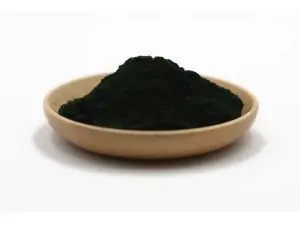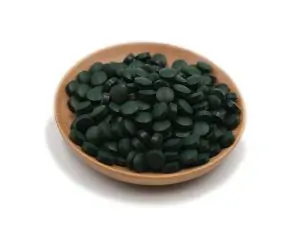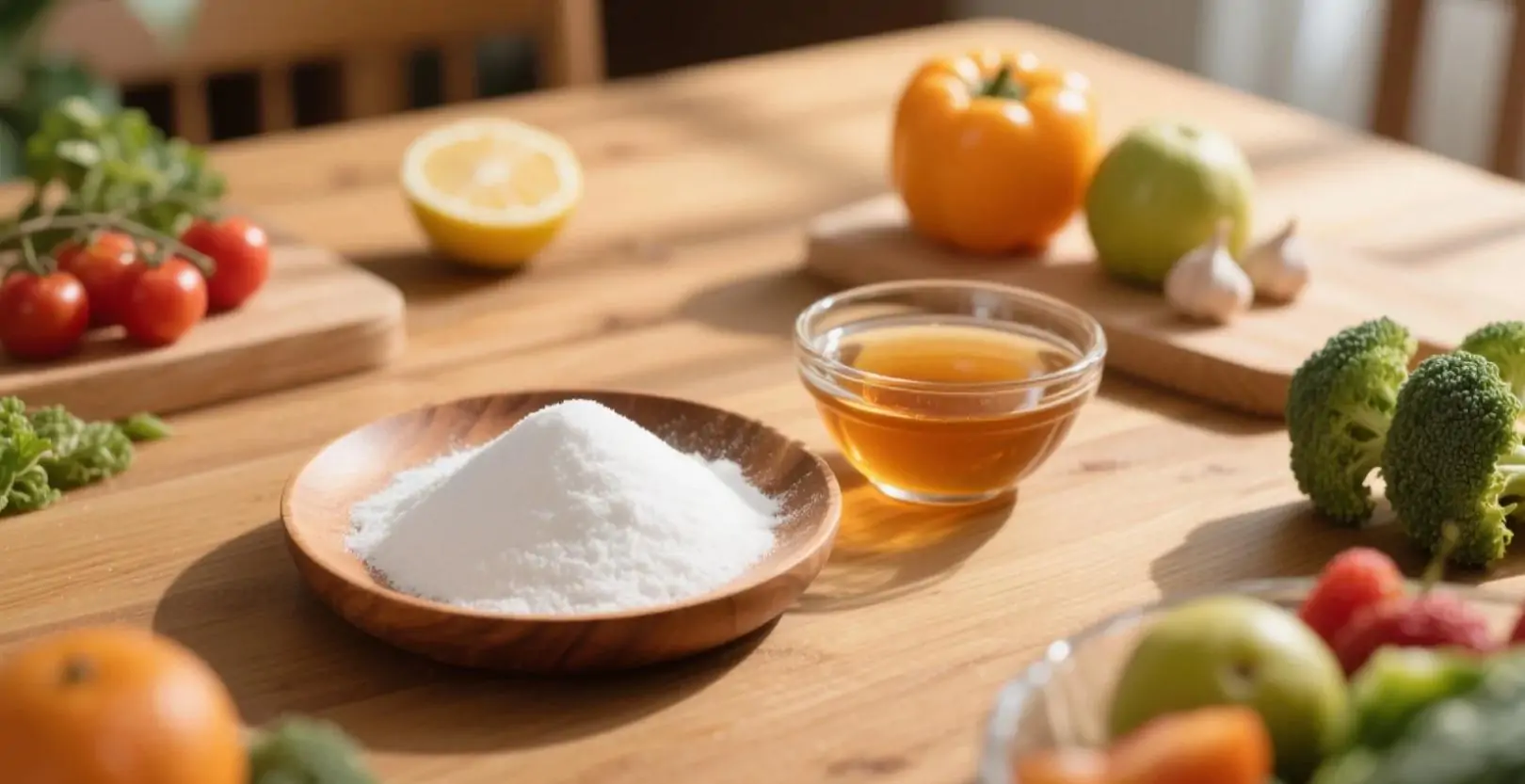Table of Contents
Spirulina, the nutrient-dense blue-green algae, is celebrated as a superfood for its protein richness, detox benefits, and immune-boosting properties. However, despite its popularity, organic spirulina powder and organic spirulina tablets aren’t suitable for everyone. While they offer a cleaner, more sustainable option than conventional spirulina, certain health conditions, medications, and biological factors can make spirulina risky. Let’s explore who should avoid it, why, and how to choose safer alternatives.
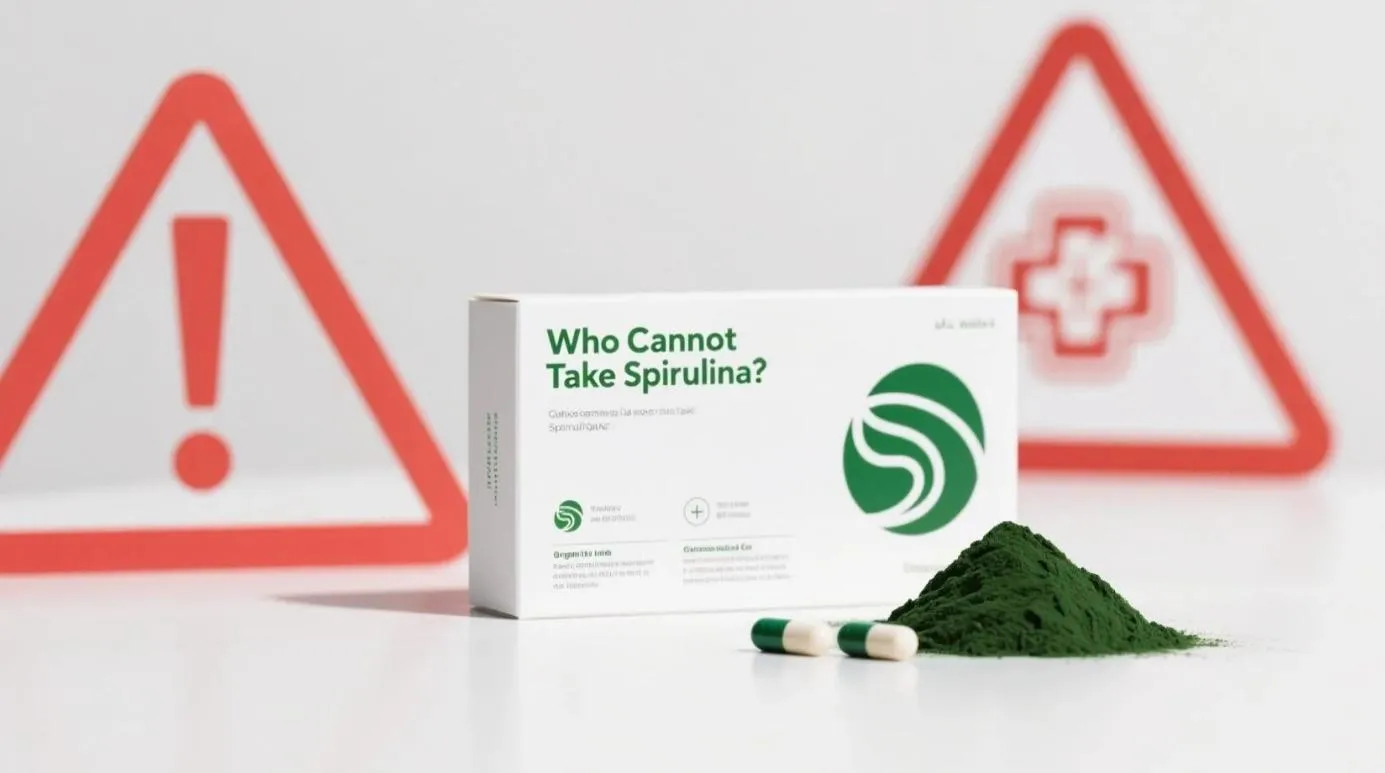
Organic Spirulina Powder vs. Tablets: Key Differences
Before diving into contraindications, understand how forms differ:
| Factor | Organic Spirulina Powder | Organic Spirulina Tablets |
|---|---|---|
| Absorption Speed | Faster (mixable in liquids) | Slower (tablets dissolve gradually) |
| Additives | None (pure powder) | May contain binding agents like cellulose |
| Dosage Flexibility | Adjustable (1–3 tsp/day) | Fixed (2–6 tablets/day) |
| Best For | Blending, cooking, high-dose needs | Convenience, travel, sensitive taste buds |
7 Groups Who Should Avoid Spirulina
1. Autoimmune Disease Patients
Conditions: Lupus, rheumatoid arthritis, multiple sclerosis, psoriasis.
Why Avoid: Spirulina stimulates the immune system by increasing cytokine production and antibody activity. For autoimmune disorders, this can exacerbate flare-ups by overactivating an already hyperactive immune response.
Safer Alternatives: Turmeric, reishi mushroom (immune-modulating, not stimulating).
2. Pregnant or Breastfeeding Women
Why Avoid:
- Heavy Metal Risk: Non-organic spirulina may contain neurotoxic metals like lead or mercury, which can harm fetal development.
- Hormonal Effects: Phytoestrogens in spirulina could theoretically disrupt hormonal balance.
- Organic Exception*: Some studies suggest certified organic spirulina powder (tested for heavy metals) may be safe in small doses (½ tsp/day) during pregnancy, but consult a doctor first.
3. People with Phenylketonuria (PKU)
Why Avoid: Spirulina contains phenylalanine (600–800 mg per 10g), an amino acid that PKU patients cannot metabolize. Accumulation can cause brain damage.
Alternatives: Chlorella (lower phenylalanine) or vitamin B12 supplements.
4. Those on Blood Thinners or Anticoagulants
Medications: Warfarin, aspirin, clopidogrel.
Why Avoid: Spirulina’s high vitamin K content (4–5 µg/g) can counteract blood thinners, increasing clotting risk. Additionally, its antiplatelet properties may unpredictably amplify bleeding in some cases.
Safe Dose: Only under doctor supervision; monitor INR levels closely.
5. Seafood/Shellfish Allergy Sufferers
Why Avoid: Spirulina shares proteins with shellfish and iodine-rich seafood. Cross-reactivity can trigger allergic reactions like hives, swelling, or anaphylaxis.
Testing Tip: Try a microdose (¼ tsp) and wait 24 hours before regular use.
6. Individuals with Kidney Stones or Gout
Why Avoid:
- Purines: Spirulina contains moderate purines (60–80 mg/10g), which metabolize into uric acid. This can worsen gout attacks or kidney stone formation.
- Calcium Oxalate Risk: Some strains may accumulate oxalates, promoting stone growth.
- Alternatives*: Wheatgrass juice (low-purine, alkaline-forming).
7. Children Under 12
Why Avoid:
- Heavy Metal Sensitivity: Kids are more vulnerable to trace contaminants in non-organic spirulina.
- Immune Overstimulation: Developing immune systems may react unpredictably to spirulina’s potent immunomodulators.
- Organic Exception*: Pediatricians sometimes recommend ¼–½ tsp organic spirulina powder for iron deficiency, but only under medical guidance.
Why “Organic” Spirulina Reduces (But Doesn’t Eliminate) Risks
Non-organic spirulina carries higher risks due to:
- Toxin Contamination: Grown in open ponds, conventional spirulina absorbs microcystins (liver toxins), pesticides, and heavy metals like arsenic.
- Irradiation: Some brands use gamma radiation for sterilization, degrading nutrients.
Certified organic spirulina powder/tablets ensure:
✅ No synthetic fertilizers, pesticides, or GMOs
✅ Closed-loop cultivation systems (prevents environmental toxins)
✅ Third-party heavy metal testing (lead, mercury, cadmium)
✅ Non-irradiated processing (preserves antioxidants like phycocyanin)
How to Take Spirulina Safely (If You’re Eligible)
- Start Low & Slow: Begin with ½ tsp powder or 1 tablet daily; gradually increase over 2 weeks.
- Cycle Usage: Take for 6 weeks, then pause for 2 weeks to prevent heavy metal buildup.
- Pair with Detoxifiers: Combine cilantro or chlorella to bind and eliminate residual toxins.
- Hydrate: Drink 8 oz water immediately after spirulina to aid digestion and kidney function.
When to Stop Taking Spirulina Immediately
Discontinue use and seek medical help if you experience:
- Severe Gastrointestinal Distress: Persistent vomiting, diarrhea, or cramps.
- Skin Reactions: Itching, rashes, or facial swelling.
- Neurological Symptoms: Dizziness, numbness, or tingling (possible heavy metal toxicity).
FAQs: Spirulina Safety Unpacked
Q: Can spirulina cause thyroid problems?
A: Yes and no. Spirulina is low in iodine but high in tyrosine (a thyroid hormone precursor). Those with hyperthyroidism should avoid large doses, while hypothyroid patients may benefit moderately.
Q: Does organic spirulina interact with antidepressants?
A: Potentially. Spirulina’s tyrosine content may interfere with MAO inhibitors. Consult a psychiatrist before combining.
Q: Is spirulina safe for cancer patients?
A: Controversial. While spirulina’s antioxidants support chemo recovery, its immune-boosting effects might interfere with immunosuppressive therapies. Oncologist approval is mandatory.
Q: Can pets take spirulina?
A: Dogs and cats can safely consume organic spirulina powder (⅛ tsp per 10 lbs body weight) for coat health, but avoid giving to birds or reptiles.
The Verdict
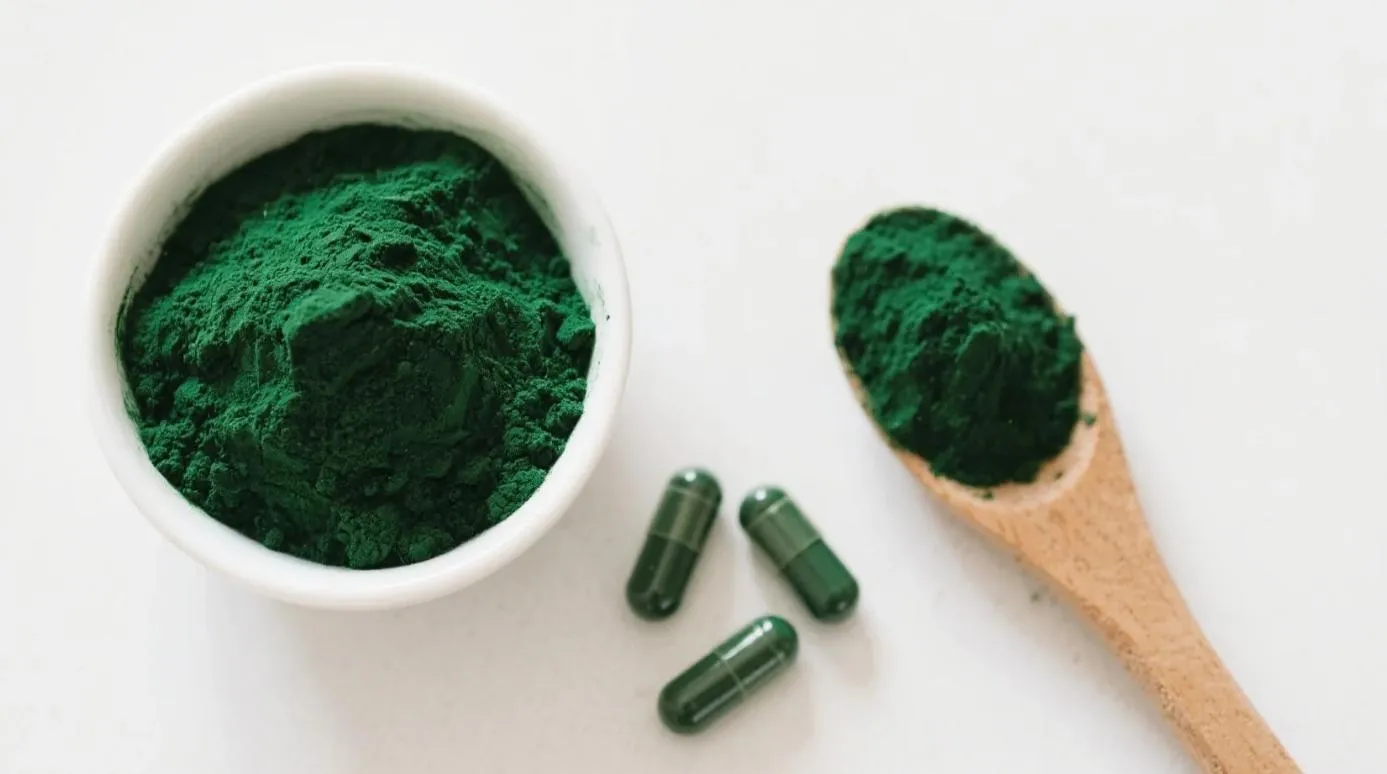
While organic spirulina powder and tablets are safer and more sustainable than conventional options, they’re not universally risk-free. Autoimmune patients, pregnant women, PKU sufferers, and those on blood thinners should strictly avoid spirulina. For others, moderation, sourcing transparency, and medical guidance are key to harnessing its benefits without harm.
Choose Wisely, Thrive Safely
Opt for certified organic spirulina from brands that publish third-party lab results and use closed-system farming. Whether you stir powder into smoothies or pop tablets on the go, prioritize purity and listen to your body’s signals.
Your health is priceless—nourish it with knowledge and nature’s finest.
Related Products
Organic Spirulina Powder
Organic spirulina powder delivers 60% complete protein, bioactive phycocyanin, and bioavailable iron.…
Organic Spirulina Tablets
A potent, natural superfood in an easy-to-take tablet form.
Organic Phycocyanin
Organic phycocyanin powder delivers natural blue coloring with antioxidant and anti-inflammatory benefits.…
